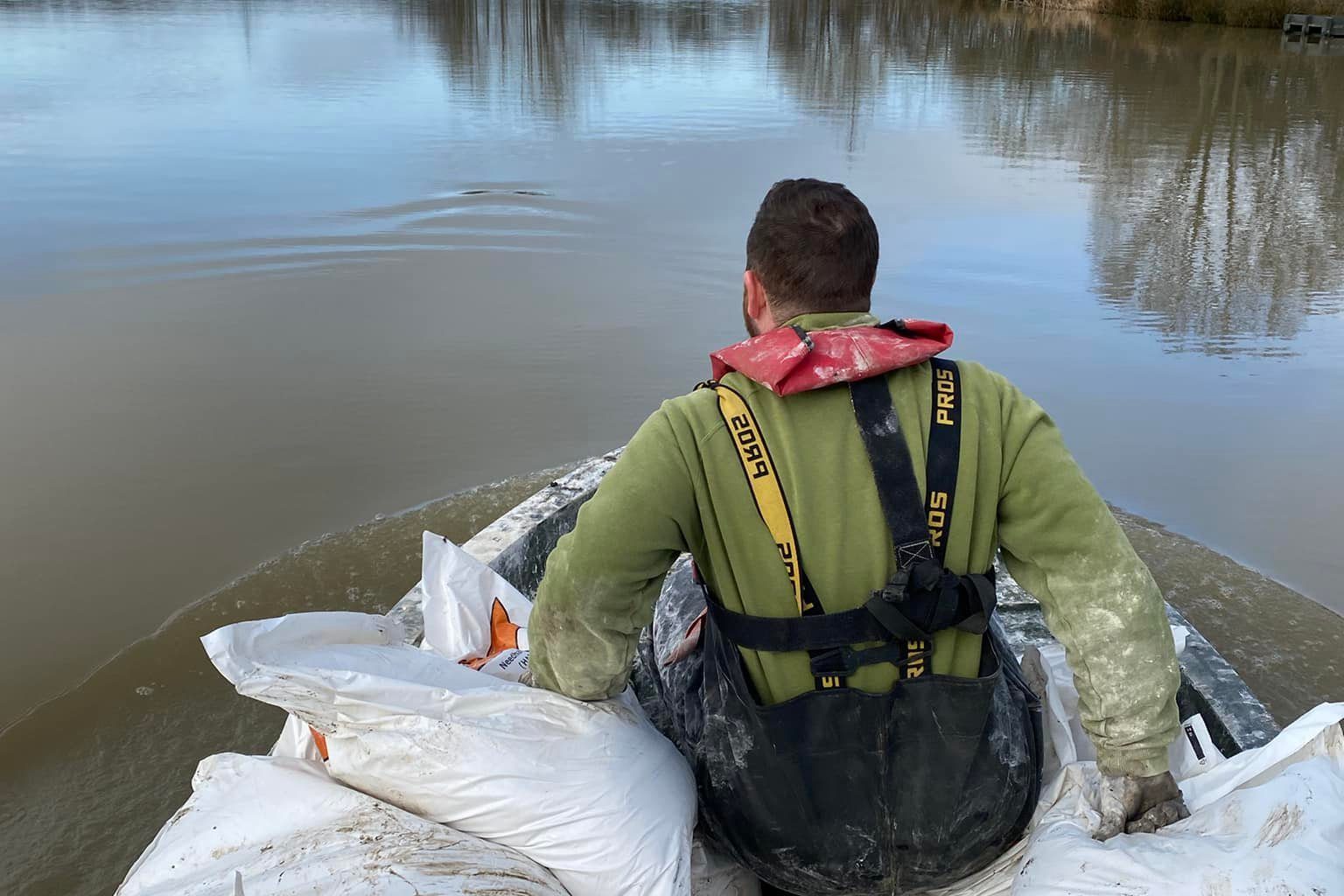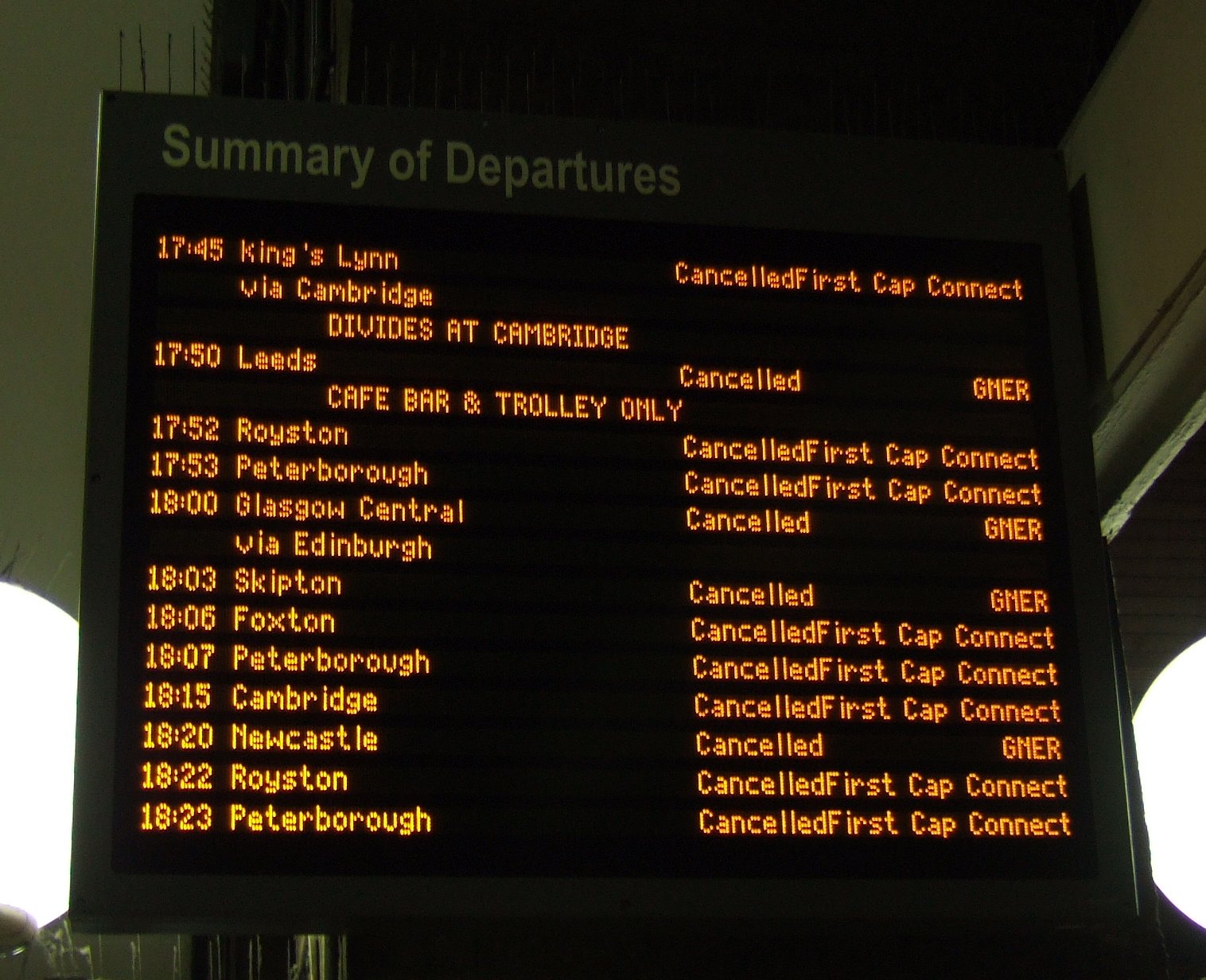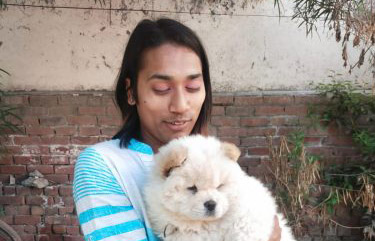“Fish farming is not sustainable,” says Ben Cornick, “at all.”
Ben is the director of Five Star Fisheries, a specialist network of carp fisheries designed for game fish. He operates five lakes in the Blackmore Vale region of North Dorset. We were standing in the shadow of a great beach tree, which sheltered us from the first Spring sunshine of the year, peering at one the lakes Ben managed. He pointed down, as the water rippled. Underwater, it teemed with life – brown and orange scales undulating in the current.
“The biggest problem with fish farming is the food needed to provide to grow X amount of mass,” Ben says. “To do this, you need to provide a fishmeal-based food, which isn’t sustainable at all. It doesn’t make sense — utilising fish that’s taken out of the ocean to feed fish that’s to be eaten.”
We asked Ben why fish farming cannot be sustainable. He revealed that for the fish farming industry to even exist you need to provide suitable food and unfortunately to support the market demands, a fishmeal formula is the only competitive way. Other foods do exist such as grains or wheat or barley but these are not a complete diet and do not provide the weight gains significant enough to work a business. Ben turned to me when he made this point and seemed resigned. “Unless we have a competitive weight gain in our fish we can’t be a viable business,” he says. “It’s a hard game anyway, making any sums of money.”
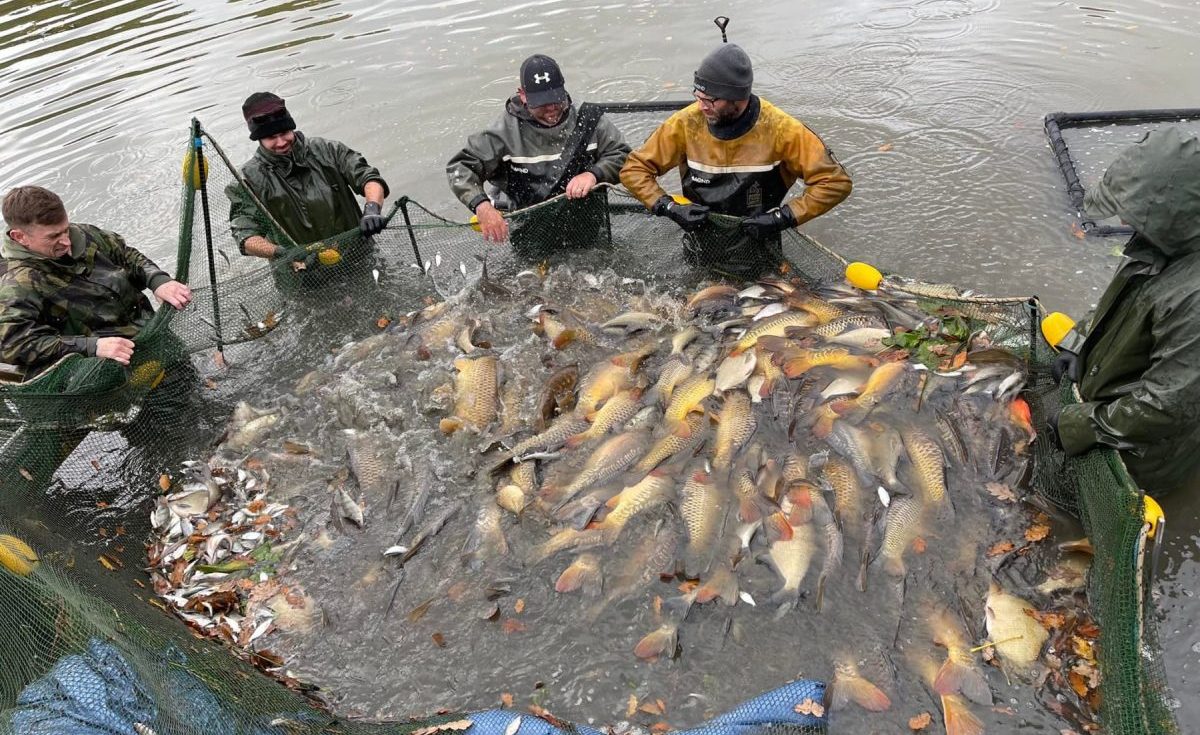
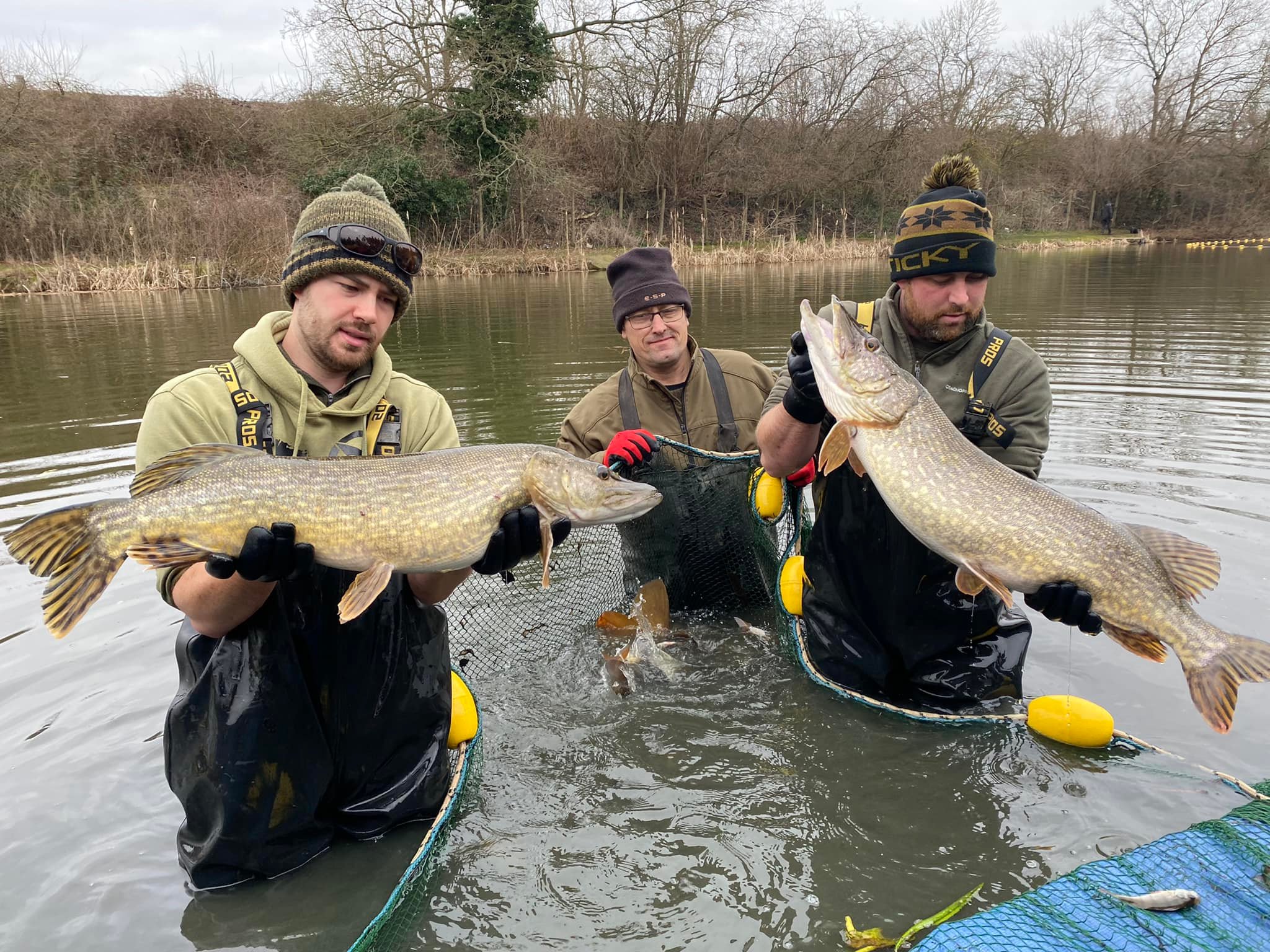
Ben showed me across another lake, this one with newly fresh carp for this October’s batch. The lake was significantly bigger than a football pitch, larger than we expected to see when we began investigating fish farms. It almost seemed humane, were it not for the poignant fact that they were in fact living commodities. Carp’s natural diet includes certain weeds and clay. Bloodworms and microorganisms. Creatures that slithered and slathered along the banks of rivers and lakes. This isn’t manifested in fish farms, and as Ben explained for his livelihood, he can’t afford to invest in sustainable diets. Therefore, the industry can’t afford to invest in a more regenerative ecosphere around fisheries.
I asked Ben about the impacts of overfishing on marine life and how this affected his business. I mentioned the recent legislation in 2019 that attempted to ban ocean faring trawlers in UK waters. It just is not enough.
“All any governments have done is restrict recreational fishing,” he says. “They’ve done nothing to stop those five-mile nets that just rape the oceans. It’s disgusting. I’ve seen it all over the world. Local fisheries and farms are having to go out further and further for fish and the impact of overfishing, particularly in UK waters, is bad. Communities are having to go out further and further, and it’s due to these international trawlers just assaulting the floors.”
These colossal husks sweep and comb the ocean floor and throw back anything undesirable. Trawlers from as far as China have been spotted in North Atlantic waters and the effects are being felt at home with fish stocks plummeting in the last 30 years. “You can’t take a snapper but then you see these super trawlers off the coast with and they’re setting out five-mile nets,” says Ben.The legislation in the UK is getting better for super trawlers, but it’s nowhere near enough. A report from Aquafind revealed that for every one tonne of prawns caught three tonnes of other fish are killed in the nets and thrown back. This includes octopuses, bramble sharks and hundreds of other unique and beautiful species of aquatic life.
Odentella is an algae and sustainable environment brand that has put huge effort into educating and informing on sustainable fishing practices. It’s founder Pierre Calleja says: “This is something we don’t think about. Fish farming isn’t just in a lake and it’s not a closed cycle. You feed them off ocean fish and this disrupts the whole entire cycle.”
Most of the problems associated with overfishing have been caused in the last 50 years by the rapid advances in fishing technology. It isn’t solely linked to the large international trawlers either with the nets of salmon fishermen responsible for tens of thousands of dolphin deaths, according to Acquafind. Even smaller fishing ships are responsible for the exploitation. Small nets pull on the upper layers of the sea and force fish to move inwards. Fish can’t move backwards so once caught, there’s no escape.





